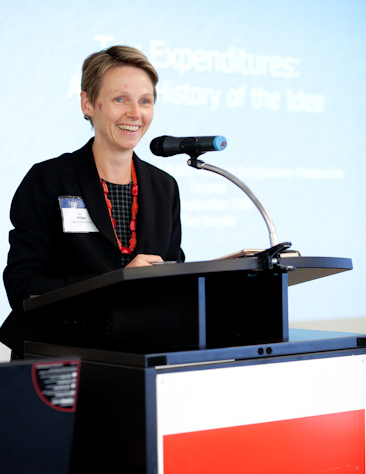York University’s Osgoode Hall Law School in Toronto hosted the Tax Expenditures and Public Policy in Comparative Perspective with experts from around the globe to debate the growing tendency of governments using the tax system as a policy tool.
 Tax incentives have become a highly popular means of advancing policy agendas in areas from education to the environment, from industry to health.
Tax incentives have become a highly popular means of advancing policy agendas in areas from education to the environment, from industry to health.
Recent examples in Canada include the home renovation tax credit, accelerated writeoffs for capital equipment, the public transit pass credit, a full tax exemption for post-secondary scholarships, and tax-free savings accounts.
These special breaks have been called tax expenditures to make the point that they cost money, and policy-makers could often pursue the same goals more efficiently and fairly with a direct spending program or regulation. But that’s where the sparks start to fly, with some arguing tax measures are easier to administer and more politically acceptable than other forms of government intervention.
The goal was to have a high-level discussion about the experience of different countries with tax expenditures, and what design features make them more or less effective in achieving the results that policy-makers are after.
A key theme emerging from the mid-September meeting was the need for oversight to measure the actual impact of tax incentives on the ground. John Tobin, a tax law partner at Torys LLP, described the kinds of unintended effects that can arise when environmental tax incentives clash with other rules in the tax system.
Professor Lily Batchelder of New York University School of Law, urged policy-makers to take a closer look at what actually makes taxpayers change their behaviour in response to an incentive, such as making the benefits simple and uniform rather than dependent on a complex array of individual circumstances, and delivering benefits in the present rather than at some distant point in the future.
Despite many points of controversy there was broad agreement about the urgent need to improve the way countries enact and account for tax incentives.
While in Canada the government does keep track of their cost, few members of the public have any idea this information exists.
There is plenty of expert criticism about the poor return on many tax breaks but once enacted into law they tend to sit in the tax code permanently. Unlike many direct spending programs, they need not be reviewed or re-approved through the legislative process.
The eagerness to participate in the forum came, not only from academia, but also from think-tanks, the non-profit sector, government, and the tax bar.
Among the many well-known speakers were Osgoode professors Neil Brooks and Jinyan Li; professor Edward Kleinbard of University of Southern California Gould School of Law (formerly chief of staff of the U.S. Congress Joint Committee on Taxation); professor Jack Mintz, Palmer Chair in Public Policy at the University of Calgary; professor Rick Krever of Monash University in Australia; and journalist and author Linda McQuaig.
The conference was sponsored by the Canadian Tax Foundation, York University — which had designated it as one of its 50th anniversary events this year — the Social Sciences and Humanities Research Council of Canada, and the Jay and Barbara Hennick Centre for Business and Law at Osgoode and the Schulich School of Business.
For more information and video presentations go to www.taxexpenditures.ca.
Professor Lisa Philipps teaches at Osgoode Hall Law School in the tax area and has published on numerous topics in taxation law and fiscal policy. She is also associate dean (research, graduate studies, and institutional relations).










